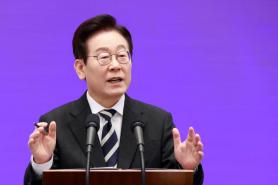
[Gettyimages Bank]
The Ministry of Trade, Industry and Energy revealed the "National Advanced Industry Promotion Strategy" at the Emergency Economic and Livelihoods Council, chaired by President Yoon Suk-yeol on March 15. President Yoon said, "We will build the world's largest advanced system semiconductor cluster in the capital region based on large-scale private investment totaling 300 trillion won."
The trade ministry presented roadmaps designed to nurture six technology sectors -- semiconductors, displays, secondary batteries, biotechnology, future cars, and robotics. To strengthen the capabilities of selected sectors, the government will push to secure leading-edge technological capabilities, cultivate innovative talent, establish region-specific clusters, build a robust ecosystem, create an investment-friendly environment, and protect national interests through trade diplomacy.
South Korea's first step for its future growth engine incubating project will be the establishment of the 300-trillion-won semiconductor cluster in Yongin. According to the trade ministry, the cluster will be the largest of its kind. The plan is to build five advanced semiconductor fabrication plants (fabs) and attract up to 150 domestic and foreign companies specializing in materials, components, and equipment (MCE) and fab-less semiconductor design companies.
The new Yongin cluster will be the final piece that will complete a mega-cluster by connecting nearby MCE companies and fab-less companies.
The government has also decided to significantly open up 4-nanometer processes for AI semiconductors and processes for vehicle and home appliance semiconductors. It also set a goal of fostering 10 fab-less companies with 1 trillion won annual sales by focusing on the development and mass production of excellent fab-less prototypes. The government also plans to support the development of next-generation core technologies, such as power, vehicle, and AI semiconductors, through a 3.2-trillion-won in funding by 2030.
Copyright ⓒ Aju Press All rights reserved.




